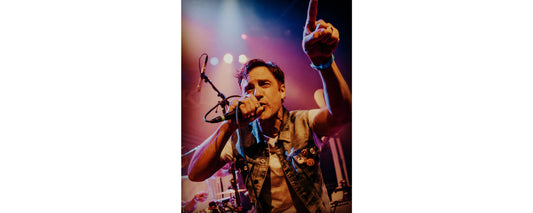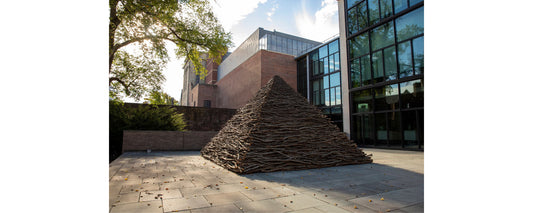From their fifth-floor offices on James Street, the staff of United Way of Greater New Haven can see much of the city: East Rock’s cliffs standing tall against a purple sky, State Street’s traffic crossing beneath Amtrak trains swishing past on the elevated track, Fair Haven’s homes standing shoulder to shoulder as if to keep warm as the winter light melts away. The view could be a metaphor for the work this powerhouse nonprofit does. For just shy of 100 years, United Way of Greater New Haven has been watching over the city, building bridges among smaller organizations and helping ordinary New Haveners with extraordinary challenges.
sponsored by
Nationally, United Way began in Denver as a chapter of the Charity Organization Society in 1887. Another precursor to United Way, Community Chest, was founded in 1913 in Cleveland. If the name Community Chest sounds familiar, it’s probably because it was borrowed for those yellow cards on the Monopoly board: “Bank Error in Your Favor Collect $200,” “Doctor’s Fee Pay $50.” Later known as United Fund, the organization took on its current moniker in 1971. That year, United Fund of Greater New Haven and the Community Council of Greater New Haven were consolidated to form the local United Way we have today.
But while many New Haveners have heard of the organization, its staff find people have questions about what it does. The short answer? A lot.
Think of United Way of Greater New Haven as a coalition-builder with a bird’s eye view of what’s happening in the city and the ability to bring a multitude of organizations to the table, literally, to work more efficiently on the biggest issues facing New Haven, including homelessness, hunger, financial instability and education.
sponsored by
The organization’s work around homelessness provides an illustrative example, says Jennifer Heath, president and CEO. In 2009, the federal government told local agencies they had to start working together to confront the issue of homelessness. Agencies in New Haven asked United Way to help them meet that mandate. Because UWGNH is neither a government agency nor a direct service provider, it’s seen as neutral, says Coordinated Access Network director Kelly Fitzgerald. “We can live in that space where people don’t feel that it’s a conflict of interest or that we’re competing for resources but that we’re really working on behalf of those agencies for the common goal of solving issues for people in the region,” Fitzgerald says.
Over the last five years, UWGNH has helped local agencies combating homelessness to focus on homeless veterans and chronic homelessness. This year, they ran a 100-day youth challenge, with a goal of housing 100 people in 100 days; by the end, 119 youth and their children had new homes. The larger goal is to eradicate homelessness among young people in greater New Haven by June of 2020. For each of these projects, UWGNH handled the logistics: getting agencies together, hosting meetings, identifying “critical agenda topics,” collecting best practices developed in other cities, bringing in speakers and fundraising. Collaborating with the Town of Guilford, they scored a $350,000 grant from the Connecticut Department of Housing to “divert” at-risk people from homelessness by helping them obtain what they need in order to stay in more stable housing. “We’re leveraging what agencies are doing well instead of everybody trying to grow so big and do it all,” Fitzgerald says.
While UWGNH is often a coalition-builder, as in the case of homelessness, it also has its own team of hundreds of volunteers, whose work runs the gamut from single DIY projects to big, ongoing commitments. Some volunteers prepare simple Welcome Home kits for people moving from shelters into new homes. Others undergo intensive training to help people with their tax returns through Volunteer Income Tax Assistance (VITA), a service that volunteer coordinator Dennis Velasquez calls “one of the most effective anti-poverty measures in the country” because it helps people tap into the earned income tax credit. Between one-time and regular commitments, UWGNH volunteers put in 18,476 hours last year, helping 53,112 people in the 12 towns it serves in greater New Haven. On September 21 alone, for New Haven Day of Caring, 200 volunteers packed up 35,000 meals. “It was just an amazing day, just seeing the people in the room that were with us, from mothers with their children strapped onto them to all our local partners,” Velasquez says. “It was great to see.”
Another annual United Way event is the worldwide Day of Action, traditionally held on the longest day of the year, the summer solstice in June. It’s a chance for volunteers both old and young to “be part of solutions that make a real difference in people’s lives,” the national website says. “I love when people come with their kids,” Fitzgerald says. “When I see a mom or a dad and a kid walk in, I’m like, ‘Yes! This is what it’s all about.’”
There are 15 local United Ways like UWGNH in Connecticut. The state branch, located in Rocky Hill, operates the 211 hotline, which people can call to get help and information on needs such as housing, child care and health insurance. United Way’s national headquarters in Alexandria, Virginia, provides additional services, such as sharing information and best practices among local and state offices, working on issues of importance with government officials and bringing national funding to local levels.
That doesn’t mean UWGNH has everything it needs. The organization is always looking for volunteers and donations, Heath says. “The fact of the matter is every gift actually makes a huge difference, because we are able to combine it with the power of other gifts and put it towards community priorities in ways that we know make a huge impact.” And despite the fact that UWGNH has both state and national organizations behind it, the money raised here stays here, Heath says. “We make decisions here at the local level about how those dollars are used and what the priorities are, so we’re not being driven by a national organization,” she says, “although we benefit from being part of a network, for sure.”
Some of the events UWGNH sponsors have nothing to do with money. In October, when an outdoor event for Yale Founder’s Day was canceled, Shake Shack invited United Way inside to distribute little paper t-shirts on which customers wrote their intentions for making New Haven a better place to live. Some of these miniature shirts are hung like clothes on a line across the top of a cubicle at the United Way office. “Donate clothes to a shelter,” one reads. “Raking & weeding for elderly neighbors,” reads another.
Where there’s a will, there’s a way—and to remind us of that, there’s a Way.
United Way of Greater New Haven
370 James St, Suite 403, New Haven (map)
(203) 772-2010
www.uwgnh.org
Written and photographed by Kathy Leonard Czepiel.









